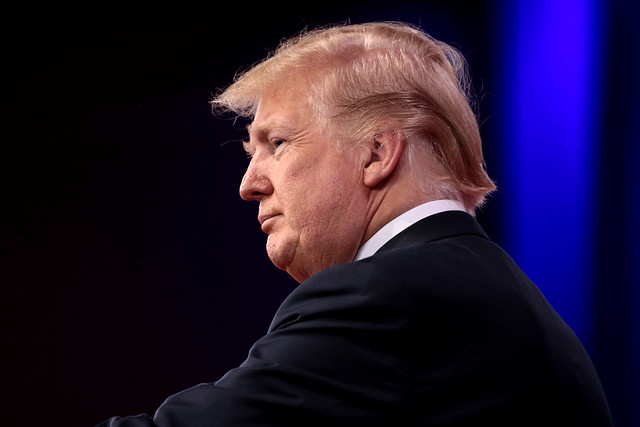Business and Economy
Trump Organization indictment hints at downsides of having no independent oversight – unlike companies traded on Wall Street

A Manhattan grand jury on July 1, 2021, indicted the Trump Organization and one of its top executives, Chief Financial Officer Allen Weisselberg, over his failure to pay taxes over 15 years.
I’m a scholar in corporate leadership and governance. While I can’t comment on the specifics of the case, I do know that private companies like the Trump Organization lack the safeguards of public corporations – like outside ownership and independent oversight.
Moreover, impulsive decision-making by an individual or small, isolated group of followers, without those safeguards, can and often will lead to disastrous results.
That appears to be what the ongoing criminal investigations into the Trump Organization show.
Public ownership
Several years ago, I explored the distinction between public and private companies in detail when the American Bar Association invited me to write about what young corporate lawyers needed to understand about how business works. Based on that research, I want to point to an important set of distinctions between public and private corporations, and what it all means for the Trump Organization.
Public corporations are those businesses that trade their stock on a public market, such as the New York Stock Exchange. They are regulated by the Security and Exchange Commission and affected by a number of important federal laws, most notably the Corporate Fraud Accountability Act, popularly known as Sarbanes-Oxley.
Private companies like the Trump Organization do not trade their stock publicly. Ownership is tightly held by a limited number of chosen investors. As such, they escape the scrutiny of these public overseers.
Outside oversight
The CEO of a public company is subject to an array of constraints and a varying but always substantial degree of oversight.
There are boards of directors, of course, that review all major strategic decisions. And there are separate committees that assess CEO performance and determine compensation, composed entirely of independent directors who don’t have any ongoing involvement in running the business.
In addition, public shareholders are entitled to vote directly on the compensation awarded to top executives. Whole categories of CEO decisions, including mergers and acquisitions, international expansions and changes in the corporation’s charter are subject to the opinion of shareholders and directors.
The composition of the board of directors is also regulated by law. Half of the directors must be independent of the company. And the board committees charged with conducting audits, hiring and firing the CEO and determining executive pay must be 100% independent. Company insiders and close family members may sit on public boards but are not counted as independent.
Full disclosure
The SEC requires the CEOs of public corporations to make full and public disclosures of their financial performance. Regular reports require disclosure of operating expenses, significant partnerships, liabilities, strategies, risks and plans.
Additionally, public companies must hire an independent auditing firm approved by the Public Company Accounting Oversight Board to conduct and verify the thoroughness and accuracy of those financial statements. Any fraudulent reporting can result in criminal charges against the CEO and chief financial officer.
These rules are all intended to safeguard the integrity of corporations, to help make them transparent to public investors and to guard against corruption. They are far from perfect, but they are helpful. And private corporations are not required to comply with any of them.
How ‘Trump Inc.’ operated
Well-governed companies, such as Microsoft and PepsiCo, tend to outperform poorly governed ones, often dramatically. That’s largely due to all the factors noted above, including accountability.
Management at the Trump Organization, on the other hand, was accountable to no one, other than Trump himself. The executive team of the Trump Organization – a limited liability company that has owned and run hundreds of businesses involving real estate, hotels, golf courses and much else – is made up entirely of his children and people who are loyal to him. And his decision-making authority was unconstrained by any external oversight or internal constraints.
Decisions concerning what businesses to start or exit, how much money to borrow and at what interest rates, how to market products and services, and how to pay suppliers or treat customers were made centrally and not subject to review.
Trump, it should be noted, made one stab at a public company in the mid-1990s: Trump Hotels and Casino Resorts. That was an unmitigated disaster, leading to five separate declarations of bankruptcy starting in 2004, all during a period when other casino companies thrived.
As a private company, the Trump Organization was under no obligation to follow the guidelines of good governance. Because, in my view, it voluntarily decided to ignore such guidelines, the indictment may be only the first of many.
Article updated with details of the indictment.
This story is an updated version of an article published on Feb. 16, 2017.![]()
Bert Spector, Associate Professor of International Business and Strategy at the D’Amore-McKim School of Business, Northeastern University
This article is republished from The Conversation under a Creative Commons license. Read the original article.





















